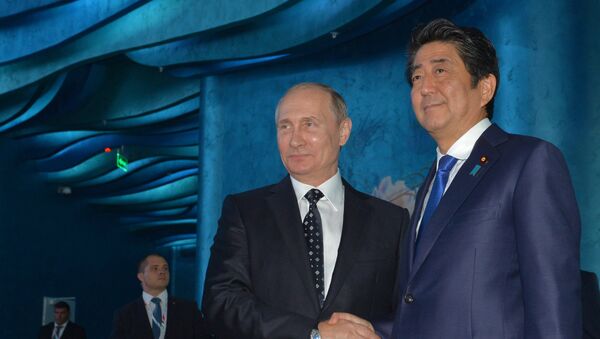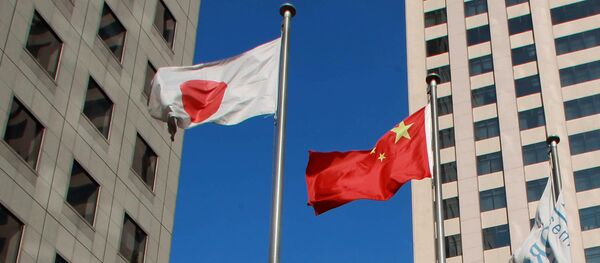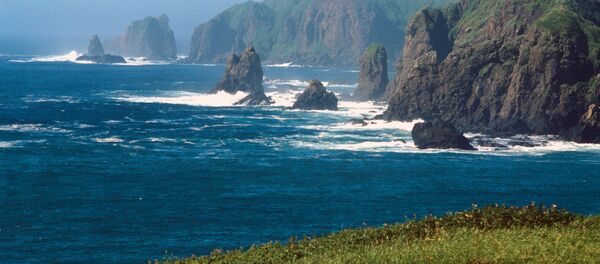Currently, Russia accounts for 1.4 percent of Japan’s foreign trade turnover and Japan — 4.6 percent in Russia's.
According to Kistanov, the numbers show an extremely low level of trade and economic cooperation between Moscow and Tokyo.
"One reason is not that Japanese companies do not want to work in Russia. The real reason is that Japanese companies do not know much about opportunities for business in Russia. The other reason is Russia’s unfriendly investment climate," the expert told Sputnik Japanese.
Nevertheless, he expressed hope that a package of documents that Moscow and Tokyo are expected to sign during the visit will curb the negative trend in bilateral trade and economic ties.
Moreover, there are many of those in Japan who are skeptical about Abe’s intention to develop economic cooperation with Moscow. Critics fear that Japan’s economic assistance to Russia will not finally result in any territorial gains.
However, experts from the Institute for Far Eastern Studies noted that Abe’s interest to Russia is broader than territorial claims and is indirectly related to China, Tokyo’s strategic rival in the region.
Many in Japan understand the fact that Moscow and Beijing have developed strategic cooperation, but they also see the possible dangers of this cooperation for Japan but also for Russia.
Sergei Luzyanin, director of Institute for Far Eastern Studies, said that the upcoming visit by Vladimir Putin to Japan will contribute to dispel Tokyo’s concerns that Moscow is carrying out an exclusively pro-Chinese policy in the region.
"The visit is aimed to prove that Russia’s foreign policy is flexible and independent. Even if this visit cannot resolve the territorial problem it will improve bilateral relations," Luzyanin said.
The dispute over the South Kuril Islands has remained unresolved since the end of WWII. Japan and Russia have never signed a permanent peace treaty after World War II due to a disagreement over four islands, which Russia calls the Southern Kurils and Japan the Northern Territories. The disputed islands, located in the Sea of Okhotsk, were claimed by Soviet forces at the end of the war.
Japanese media has repeatedly discussed possible scenarios to resolve the situation, including introducing joint governance over some of the islands or establishing areas under joint jurisdiction.
According to Kistanov, the visit on December 15-16 will not resolve the problem.
"The fact that Abe wants to end the dispute is normal. And Putin wants the same. However, they have different views of how this could be done. Japan wants a peace treaty to resolve the problem. Russia will not give all the four islets to Japan. But Japan cannot also give them up. So, a compromise should be discussed," he said.
The expert also commented on the scenario that presumes giving two South Kuril Islands to Japan according to the 1956 Joint Declaration.
"In theory, this is possible, but in practice it cannot happen," he said.
However, the expert also suggested that Putin and Abe will discuss the issue.
"The point is what a compromise should look like. Russia and Japan will try to come up with a scenario which would save the reputation of each of the sides. If Putin and Abe worked out a roadmap on the problem it would be a very positive step," he concluded.
Never miss a story again — sign up to our Telegram channel and we'll keep you up to speed!








